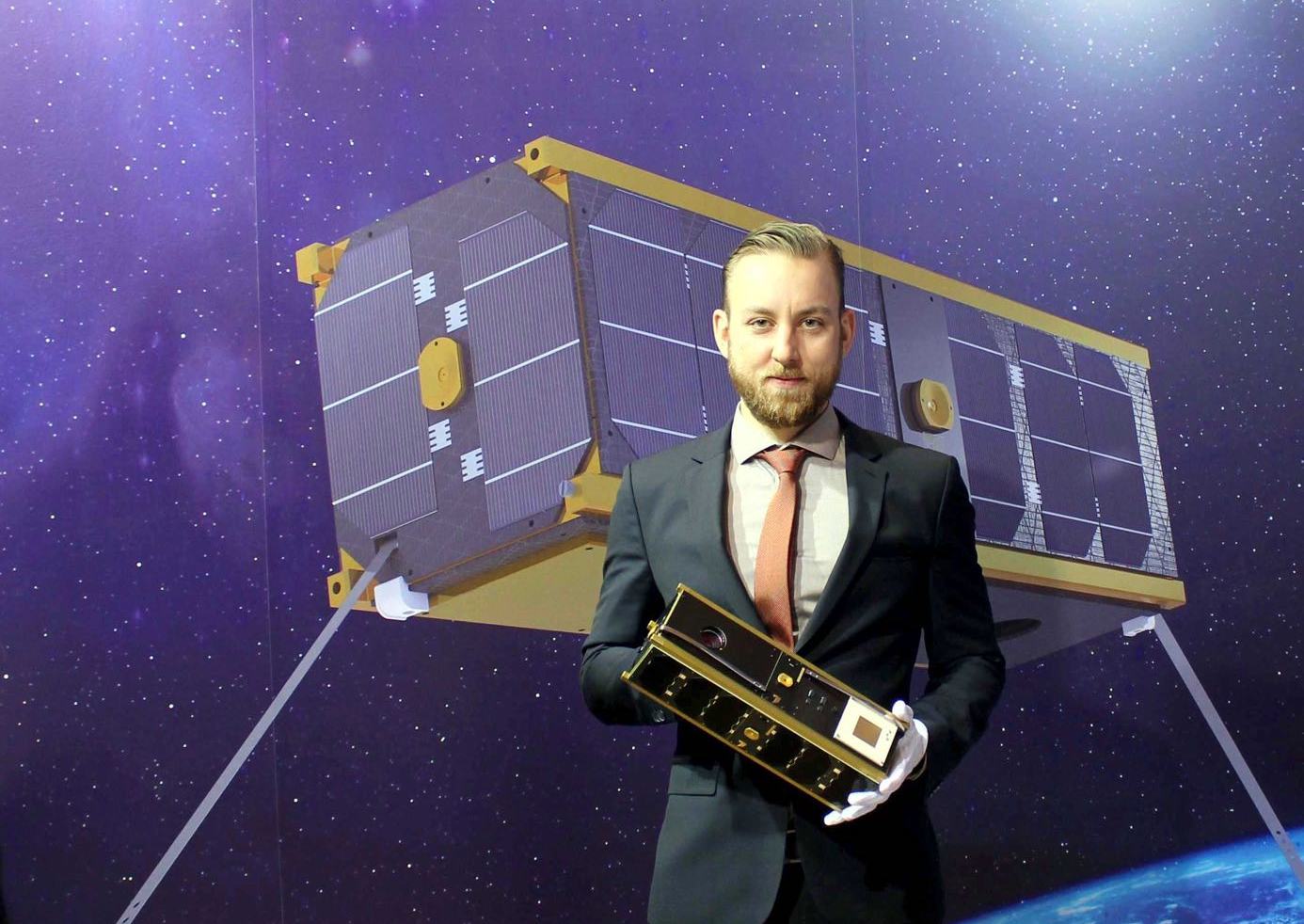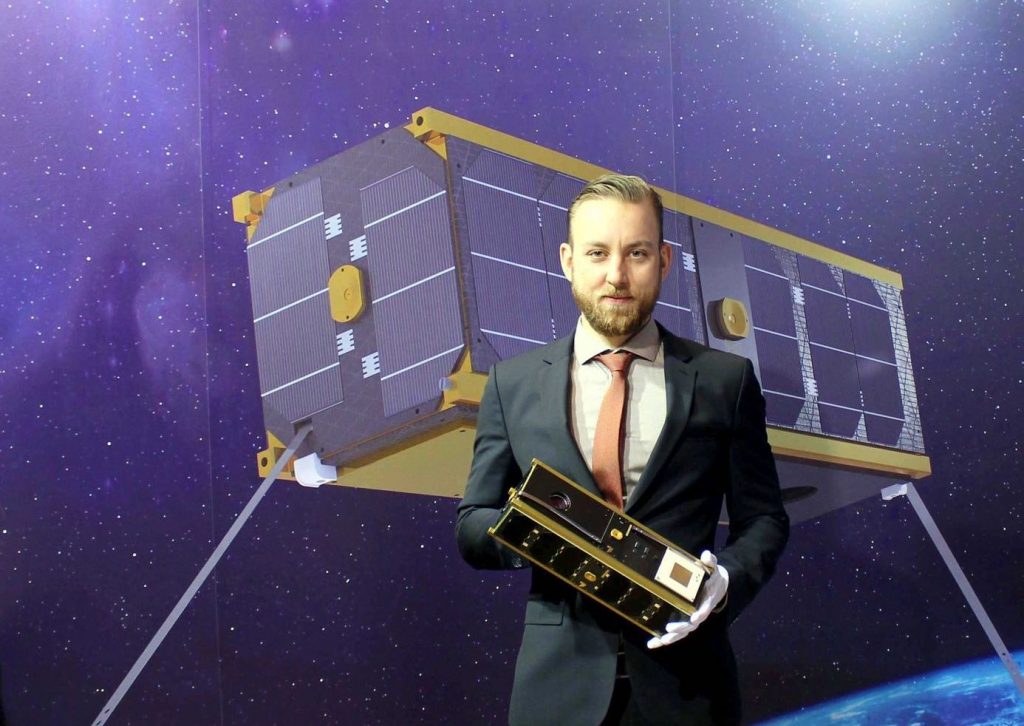Since 2014 German Orbital Systems has been spearheading the newspace movement in Germany, being the first company to focus on cost effective nanosatellites for a wide field of applications. With two of its own satellites and several customer satellites in orbit, it has advanced to one of the most notable players in Europe.
Spaceoneers spoke to Walter Ballheimer, CEO of German Orbital Systems to find out how the company got started and has become the number one cubesat provider in Germany.

Tell us how you got started
German Orbital Systems was started with a contract from a University in Kazakhstan for only 100 000 EUR without a business plan or anything. We managed to grow and prosper over 5 years. Right now we have 19 employees and several satellite projects on-going and satellites to be launched in the next months. Somehow it worked out from this small amount of money to bootstrap the company without venture capital or governmental grants.

You graduated from TU Berlin and German Orbital System is a spin-out. How did you found it through there and how?
We were not really raising funds. It was that the University in Kazakhstan wanted a copy of a CubeSat the TU Berlin was building at that time. It turned out that it was not so easy to build it twice because of licence agreements and regulations. We have been talking to all relevant legal departments, and did our best to do everything in the correct way – but we had to realise, that obviously nobody wants to earn money in Germany. Fortunately, the customer’s budget was cut by a factor of ten. So instead a BEESAT, they ordered a CubeSat development kit, which is a very lightweight version of a cubesat, which TU Berlin could not provide. We created a company to develop this project on our own and in our free time. This was our first project and how we earned our first money. The rest was from that money.
You told us German Orbital Systems was a product of German bureaucracy. How did you overcome this?
Credit should go to legal department of the TU Berlin. If they were more interested in creating business for the University instead of producing worthless paper, I probably would not have decided to start this company and would still be working at the University.
In Germany you are the #1 smallsat provider. How does that come about?
It is not so much about us but more that Germany is underdeveloped. There are not so many companies here building satellites and no companies building cubesats. So we are the only one. So it isn’t hard to be number one. There are a maybe two other companies that are focusing on smallsats in general like 50kg and above but they are not so successful. In terms of the number of launched satellites we are clearly number one in Germany. In terms of launching cubesat, we are the only one. This is how it comes to be.
How would you put yourself on the scale in Europe?
Within Europe it’s a little harder of course. Our company was only founded in 2014, so we have some kind of distance where others are in front such as ISISpace, Clydespace and GomSpace who were founded way earlier and have a technological advantage. We are trying to keep up but it’s not easy, of course. But organic growth is difficult from a certain size on. We have been growing organically until now but I see there are certain limitations, which we have reached. To compete on the European market we certainly need significant investment but probably not in terms of venture capital but rather strategic investment. We are certainly looking for partners to finance the next scaling steps.
What makes you unique?
It is not only German Orbital Systems. We also have a sister company called Exolaunch, which is held by my co-founder. So we are working very closely and that means the turnkey missions that German Orbital System build always come with a launch service. With this package we can make it much more cost-effective, so if a customer wants to purchase a turnkey mission (build to launch) it will be more effective with us compared with any of our other mission.
What advice would you give to someone starting out?
New space is a new field, which is rapidly developing and changing almost on a daily basis. It makes almost no sense to build business plans with 3 years planning. Countries are also trying to build their own space legislation, which will have an impact on so many things. Nobody knows tomorrow. Do not prepare too much. Just do it and try it!

